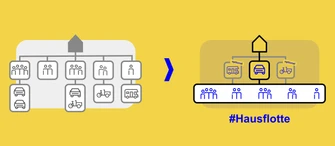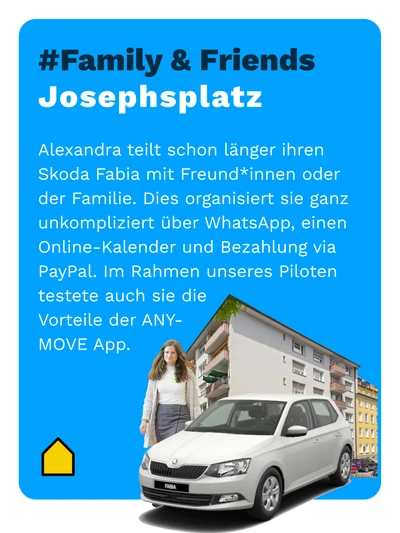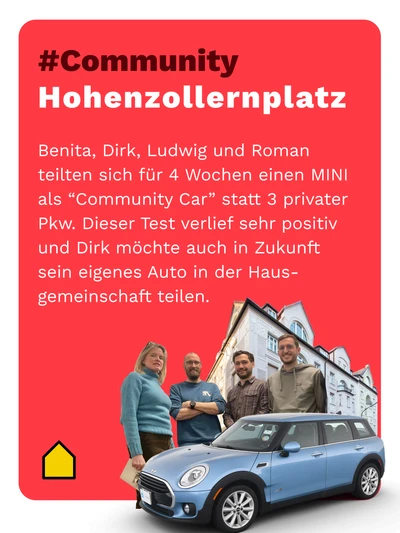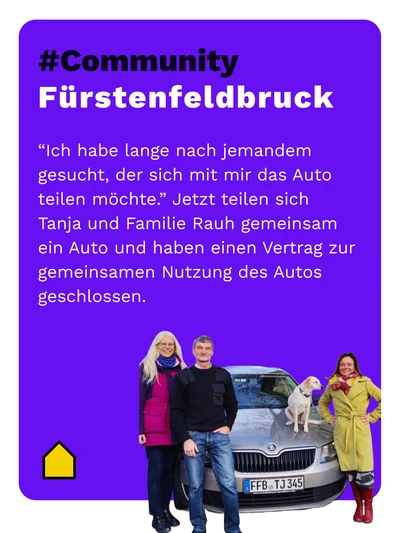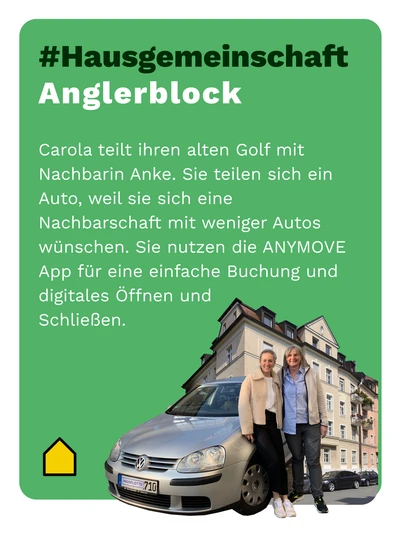In a pilot phase from January to May 2023, we tested different variants in three Munich house fleets (among neighbors, among friends, with a community car) and learned a lot about the challenges and potential of private car sharing.
What are the findings so far?
The “Hausflotte” project has shown that citizens are motivated and that non-commercial sharing of private cars is possible. Many expressed a desire to contribute to the transport revolution, try out new concepts, and reflect on their own car use.
However, trust among co-users and geographical proximity are important prerequisites. Accordingly, our focus is on sharing among friends, in the household community, or in the neighborhood.
According to the participants, the biggest barriers to entry include legal concerns regarding car insurance and taxes, but also the challenge of finding co-users.
However, the interviews with the participants also show that there is potential and motivation for private car sharing.
“I think it's good when my car is used more. I also like the charitable idea,” said participant Carola.
Digital solutions in particular make it easier to organize a #Hausflotte. However, scaling up with a self-sustaining business model is difficult under current conditions. Real incentives—such as higher parking costs—are still lacking.


